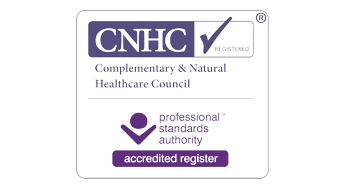'The A word'
21st October 2019

So, what do I mean, the ‘A’ word?
I mean a word which can feature in all our lives, at any time, and is often explored in the therapy space… the word ANXIETY.
Anxiety is a normal feeling and a part of everyday life, but like anything that gets out of balance, it can have a real and detrimental effect on our very existence. Feeling anxious can affect us all at different times, to different degrees, causing unpleasant physical and mental symptoms.
Often, a person becomes consumed by worry, over-thinking, feels stressed and out of control, typically then becoming anxious about feeling anxious - and so the destructive cycle begins.
What is anxiety?
The feelings we associate with anxiety are triggered by ‘the flight and fight response’ - a primeval setting within us all, a bit like an alarm/warning system, there to give us a boost of adrenaline to protect us from danger. This hormonal response is designed to increase our heart rate, oxygen intake and give us a burst of energy to ‘stand and fight or run from danger’.
However, this same response can be triggered by a ‘perceived threat’ and not an actual threat, caused by our thoughts and feelings created by such things as trauma, difficulties in life or a thousand smaller stressors that simply build up and become overwhelming. Just think of all the stresses we encounter each day; these can build like adding a drop of water to a bucket - eventually the bucket overflows.
We can live day to day with low level anxiety and then suddenly be totally overwhelmed or experience a sudden trauma which triggers a panic attack or chronic anxious feelings. Whatever the cause, the symptoms and affects are real. Below are a few examples of anxiety symptoms.
Physical symptoms can include:
- Increased heart rate or palpitations
- Hyperventilation and changes in breathing
- Tightening of the chest
- Dizziness
- ‘Butterflies in the stomach’ or feeling sick
- Tingling hands/feet
- ‘Jelly legs’
- Shaking or trembling
- Dry mouth
- Increased perspiration
- Insomnia or trouble sleeping
Psychological symptoms may include:
- Feeling out of control
- Feeling constantly on edge, alert or in a state of fear
- Feelings of impending danger or doom
- Trouble concentrating or focusing
- Thinking you may be having a heart attack, are ill or will die
- Feeling detached from those around you
- Feeling watched, in danger and in constant fear
- Wanting to run away or escape
Sometimes, anxiety can be related to medical issues, so it’s always good to consult with your GP if you’re unsure why it’s happening to you.
Types of anxieties:
- Generalised Anxiety Disorder (GAD)
- Social Anxiety Disorder
- Seasonal Affective Disorder (SAD)
- Panic Disorder
- Post-Traumatic Stress Disorder (PTSD)
- Obsessive Compulsive Disorder (OCD)
- Phobias
- Agoraphobia
- Body Dysmorphic Disorder (BDD)
- Health Anxiety
- Perinatal Anxiety
- Skin-Picking
- Hair Pulling
Over attachment?
Often anxiety is caused by an ‘over attachment’, because we care. Any of us can become over attached to an outcome, a person, a situation, an object and then the ‘fear’ of things going wrong, us losing the person/our job/our home or the situation changing becomes a repetitive fearful thought. This eventually leads to real feelings associated with being in a fearful state and so the vicious circle of anxiety is created.
‘What ifs’
When feeling anxious we are often worried about ‘the what ifs’ - what if this happens, what if they think this, what if this doesn’t happen etc, so we are constantly living in the future or indeed worrying about what we could or should have done - then we are living in the past. Swinging between worry of what may happen and worrying what did happen stops us being in the present moment and in a mindful state.
So what can you do?
- The first thing is to realise that anxiety is normal - it is when it gets too much that the problems start.
- Avoid caffeine, alcohol and drugs.
- Relaxation - I believe you cannot feel anxious and be relaxed, just as you cannot be relaxed and be anxious. So, relaxation, calming the body and mind, distractions and self-reassurance are critical to combatting those anxious thoughts and feelings.
- Techniques such as diaphragm/deep breathing, grounding techniques, distraction techniques and keeping a daily record of our thoughts and feelings can really help.
- Therapy - of course therapy can be of great help and give you the opportunity to explore your anxieties and learn ways of coping that will work for you. I feel bespoke integrative therapy to be the most beneficial, as it will help you understand your anxiety, the root causes, as well as exploring effective coping strategies that can work for you. Hypnotherapy can also be great for anxiety, empowering you to make cognitive changes, helping you achieve deep relaxation and give you tools to enable you to relax. Holistic therapies such as Reiki and Reflexology can really help too, as they are great for relaxation, but also re-balance energies, bringing a peace and calm to body and mind.
These are just a sample of some of the points and suggestions I woud explore with you in therapy. Please get in touch, if you feel you'd like bespoke support with your anxiety - in sessions we will explore much more and specific strategies for you.
So, please don’t feel like the ‘A’ word is controlling you and taking over your life.
There are so many techniques you can learn to help manage your anxiety, so reclaim your control and don’t let anxiety control you!
''Feelings come and go like clouds on a windy sky. Conscious breathing is my anchor.''
- Thich Nhat Hanh






